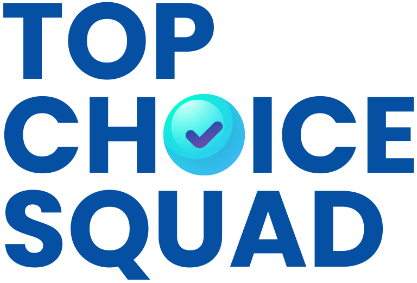Everything You Need for a CRM Software
Implementing a customer relationship management (CRM) system can transform how businesses handle customer interactions. A CRM system is a centralized hub for customer data, allowing you to manage customer interactions, streamline your sales process, and foster long-term customer loyalty.
However, simply investing in CRM software is not enough. Implementing best practices is crucial to maximizing your CRM investment and unlocking its true potential.

Here, we explore nine essential CRM best practices that will transform your CRM into a powerful tool for boosting sales, enhancing customer experience, and achieving your overall business goals.
1. Define Clear Objectives and Goals
Defining clear objectives and goals is crucial before diving into the CRM implementation process. What do you aim to achieve with your CRM system? Whether improving customer relationships, increasing sales leads, or enhancing customer retention, having well-defined goals will guide your CRM strategy and ensure all efforts are aligned toward achieving these targets.
Example Objectives
- Increase sales leads by 20% in the next quarter.
- Improve customer retention rate by 10% annually.
- Reduce sales cycle duration by 15%.
- Enhance customer experience by increasing the NPS by 20% within six months.
2. Choose the Right CRM Software
Selecting the right CRM software is a critical step. Different businesses have different needs, and the CRM solutions that work for one company might not be suitable for another. Evaluate various CRM tools based on your business requirements, budget, and the specific features they offer.
Here is a look at five popular CRM options:
HubSpot is a powerful CRM software known for its ease of use and extensive features, including marketing automation, contact management, and sales pipeline tracking. Its robust platform makes it an excellent choice for businesses looking to streamline their sales and marketing efforts. HubSpot also offers a free version, making it accessible for small businesses and startups.
Capsule offers extensive training resources and customer support, ensuring your team can use the software effectively. This focus on training can significantly enhance your overall CRM implementation success. Capsule is designed to be simple yet powerful, making it ideal for small to medium-sized businesses that need a straightforward CRM solution without sacrificing essential features.
ClickUp excels in integration capabilities, allowing you to connect seamlessly with various tools and platforms. This integration enables businesses to manage projects, tasks, and customer data in one unified system, enhancing overall business operations. ClickUp’s versatility extends beyond CRM functions, making it a comprehensive tool for managing multiple aspects of your business.
Pipedrive emphasizes data quality with features that help automate tasks and ensure contact data is always accurate and current. This focus on data integrity helps businesses make better decisions and maintain strong customer relationships. Pipedrive’s visual sales pipeline and intuitive interface make it a favorite among sales professionals who want to manage their sales process more effectively.
Zoho stands out for its extensive customization capabilities. From custom fields to personalized dashboards, Zoho allows businesses to tailor their CRM processes to match their specific requirements, ensuring the system aligns perfectly with their business strategy. Zoho’s scalability and range of integrations suit businesses of all sizes, from startups to large enterprises.

3. Ensure Proper Training and Support
Investing in CRM training for your sales team and other users is essential. A CRM system is only as effective as the people using it. Training ensures that your team understands how to fully leverage the software’s features, leading to better data entry, improved customer interactions, and more effective use of the CRM solution.
Types of Training
- Initial Onboarding: Comprehensive training sessions for new users to familiarize them with the CRM’s features and functionalities.
- Ongoing Training: Regular workshops and webinars to keep the team updated on new features and best practices.
- Role-Specific Training: Tailored training sessions based on specific organizational roles, such as sales reps, marketing teams, and customer service.
4. Integrate with Other Business Systems
Your CRM system should not operate in isolation. Integrating it with other business systems, such as ERP, marketing automation tools, and customer service platforms, can provide a holistic view of customer interactions and streamline business processes.
Benefits of Integration
- Unified Data: Integrations help consolidate customer information from various sources, providing a single view of the customer.
- Improved Efficiency: Automated workflows reduce manual data entry and the risk of errors, allowing your team to focus on more strategic tasks.
- Enhanced Reporting: Integrated systems provide comprehensive analytics and reporting, offering more profound insights into business operations and performance.
Integration Examples
- ERP Systems: Syncing your CRM with ERP systems ensures seamless order processing, inventory management, and financial reporting.
- Marketing Automation: Integrating CRM with tools like HubSpot or Mailchimp enhances marketing campaigns by aligning sales and marketing efforts.
- Customer Support Platforms: Connecting CRM with customer support systems like Zendesk provides a complete view of customer interactions, improving service quality.
5. Focus on Data Quality and Integrity
Accurate and up-to-date customer data is the backbone of any CRM system. Implement strict data validation processes to ensure all information entered into the CRM is correct. Regularly update and clean your CRM databases to maintain data integrity.
Data Quality Practices
- Regular Audits: Conduct regular audits to identify and correct inaccuracies in the contact data.
- Validation Rules: Implement validation rules to prevent incorrect data entry.
- Data Enrichment: Use data enrichment tools to enhance the quality of your customer information by adding missing details and updating outdated information.
6. Customize to Fit Your Business Needs
Every business is unique, and your CRM solution should reflect that. Customizing your CRM to fit your business processes and workflows can significantly enhance its effectiveness. Look for CRM software that offers customization options to tailor the system to your needs.
Customization Options
- Custom Fields: Add fields specific to your industry or business needs to capture relevant customer data.
- Workflows: Design custom workflows to automate repetitive tasks and streamline business processes.
- Dashboards: Create personalized dashboards that display key metrics and insights relevant to different roles within your organization.

7. Leverage CRM Automation
Automating repetitive tasks can save time and reduce errors, allowing your team to focus on more strategic activities. CRM automation features can streamline processes like data entry, follow-up emails, and sales forecasting, making your CRM system more efficient.
Automation Features
- Email Automation: Schedule follow-up emails and newsletters to engage customers without manual intervention.
- Lead Scoring: Automatically score leads based on their interactions and engagement, prioritizing the most promising opportunities.
- Task Automation: Set up automated reminders and assignments to ensure every lead or customer is noticed.
8. Monitor and Analyze CRM Data
Regularly monitoring and analyzing your CRM data can provide valuable insights into customer behavior, sales trends, and the effectiveness of your CRM strategy. Use these insights to make informed decisions and continually refine your processes.
Analytical Tools
- Reporting: Generate detailed reports on various metrics, including sales performance, customer acquisition, and retention rates.
- Dashboards: Use visual dashboards to track key performance indicators (KPIs) and gain a quick overview of your business health.
- Predictive Analytics: Implement predictive analytics to forecast sales trends and customer behavior, enabling proactive decision-making.
9. Foster a Customer-Centric Culture
A successful CRM implementation requires more than technology; it requires a cultural shift toward customer-centricity. Encourage your team to prioritize customer satisfaction, actively seek customer feedback, and use the CRM’s insights to enhance the overall customer experience.
Building a Customer-Centric Culture
- Employee Training: Regularly train employees on the importance of customer satisfaction and how to use CRM data to improve customer interactions.
- Feedback Mechanisms: Implement systems to gather and analyze customer feedback, ensuring customer voices are heard and addressed.
- Customer-Focused KPIs: Align performance metrics with customer-centric goals, such as customer satisfaction scores and retention rates.
Elevate Your Business with Effective Customer Relationship Management
Incorporating powerful CRM software like those can streamline your sales cycle, improve data integrity, and ultimately lead to a more efficient and effective business strategy. Remember, the key to successful customer relationship management lies in the technology and how well it is integrated into your business processes and adopted by your team.
By following these best practices for CRM, you can ensure your CRM systems are utilized to their fullest potential. With the right approach, your CRM can become valuable in achieving your business goals and enhancing your overall customer experience. Integrate CRM effectively, and watch your customer relationships and business performance thrive!
A customer relationship management (CRM) system can be a game-changer, helping you manage interactions, nurture leads, and drive sales. But what if you are a small business or startup with limited resources? Fear not! A wealth of free CRM software is available to equip your team and supercharge customer relationship management.
This blog dives into the top free CRM options, highlighting their features and benefits to help you find the perfect fit for your team. We will also explore some essential free CRM tools that complement your chosen software, providing a comprehensive solution for all your customer relationship management needs.

The Power of Free CRM Software
Implementing free customer relationship management software can grow your business. It provides numerous benefits without the financial burden of paid software.
Here are the reasons free CRM software and tools are essential:
Cost-Effective Solution
Budget constraints can be a significant hurdle for small businesses and startups. Free CRM software offers a cost-effective way to access robust CRM solutions without breaking the bank. These tools provide core functionalities often sufficient for small—to medium-sized teams.
Streamlined Sales Processes
A well-implemented CRM system helps streamline sales processes, making managing leads, tracking interactions, and closing deals easier. Sales automation features save time by automating routine tasks, allowing your sales team to focus on more critical activities.
Enhanced Customer Relationships
Effective customer relationship management is crucial for customer retention and loyalty. Free CRM tools help businesses keep track of customer interactions, preferences, and history, enabling personalized communication and improved service.
Improved Sales Performance
With features like sales forecasting and pipeline management, free CRM software provides valuable insights into your sales performance. These insights help teams identify opportunities, set realistic targets, and make informed decisions to drive business growth.
Marketing and Sales Alignment
Many free CRM systems have integrated marketing tools, facilitating better alignment between your marketing and sales teams. Features like email marketing and marketing automation help generate and nurture leads, ensuring a steady flow of potential customers through your sales pipeline.
Centralized Customer Data
A significant advantage of free CRM software is the ability to centralize customer data in one place. This centralization ensures all members can access updated information, facilitating better collaboration and more informed customer interactions.
Data-Driven Decisions
Free CRM tools provide analytics and reporting features that enable businesses to make data-driven decisions. By analyzing customer behaviors and sales trends, companies can optimize their strategies, improve their sales processes, and enhance overall sales performance.
Boosted Customer Retention
By using a free CRM system to track customer interactions and preferences, businesses can deliver personalized experiences that enhance customer relationships. This customized approach improves customer satisfaction and significantly boosts customer retention and loyalty.

Top Free CRM Software for Your Sales and Marketing Teams
The best free CRM software for your team will depend on your specific needs and team size. Here are some of the most popular free CRM options, each with its unique strengths:
Pipedrive is a deal-driven CRM solution that doubles as an account management tool, assisting with marketing and the entire sales process. Its proactive nature automatically tracks and organizes calls and emails while synchronizing schedules across devices. Pipedrive’s visual approach to managing the sales pipeline is especially appealing to small and midsize businesses, providing a clear view of the sales process from start to finish. This capability helps teams stay organized and focused on closing deals efficiently.
Key Features:
- Visual sales pipeline
- Sales automation
- Sales forecasting
- Integration
Capsule CRM stands out in the SMB market by offering innovative features focused on analytics and collaboration. Designed to be both user-friendly and powerful, Capsule CRM grows with your business and provides a range of customization options to meet your specific needs. It also includes mobile apps for Android and iOS, allowing you to access essential features on the go, making it a flexible choice for customer relationship management.
Key Features:
- Contact management
- Task management
- Sales pipeline
- Integration
HubSpot is a comprehensive cloud-based CRM platform ideal for businesses of any size and industry. It tracks and nurtures leads, analyzes crucial business metrics, and manages B2B and B2C relationships. With HubSpot, companies can monitor outbound and inbound leads effectively, automate sales pipeline management, streamline contact management, execute targeted email marketing campaigns, and meticulously track performance metrics. Its robust features and scalable architecture render it a top choice for companies seeking to elevate their customer relationship management strategies.
Key Features:
- Contact management
- Sales pipeline
- Sales automation
- Marketing tools
- Customer support
ClickUp goes beyond traditional CRM functionalities by integrating collaboration tools, project tracking, reporting dashboards, workflow creation, and document organization into a unified productivity platform. Its free plan offers a comprehensive feature set, including collaborative docs, whiteboards, Kanban boards, unlimited tasks, and sprint management. This unique combination makes ClickUp an exceptional option for businesses seeking a versatile project management tool that complements their CRM system requirements.
Key Features:
- Customizable CRM system
- Task and project management
- Sales automation
- Integrations
Zoho is a versatile entry-level CRM platform that can quickly scale with your small business’s growth. Its free CRM plan is top-rated among startups seeking a cost-effective way to track leads and manage contacts. For companies needing more advanced features, upgrading to a paid plan unlocks capabilities such as marketing automation and comprehensive customer and contact data tracking. Additionally, Zoho CRM offers seamless integration with other tools and third-party apps like Mailchimp, Google Analytics, and QuickBooks, ensuring smooth workflow and data synchronization.
Key Features:
- Contact management
- Sales automation
- Marketing tools
- Sales pipeline management

Free CRM Tools to Supercharge Your Team
Beyond the core functionality of a free CRM system, there are several additional free CRM tools available to enhance your team’s capabilities further:
- Email Marketing Tools: Free email marketing tools like Mailchimp or SendinBlue allow you to create and send targeted email campaigns to nurture leads and engage with customers.
- Project Management Tools: Free project management tools like Trello or Asana can be integrated with your CRM to streamline workflows and improve collaboration within your team.
- Customer Support Tools: Free customer support tools like Zendesk or Help Scout can be used to manage customer inquiries and provide excellent customer service experiences.
By leveraging a free CRM tool, you can significantly boost your team’s productivity and efficiency, ultimately driving better business outcomes. Integrating these solutions creates a robust ecosystem that supports every aspect of your customer relationship management strategy, ensuring your team can focus on what matters most: building solid and lasting relationships with your customers.
Factors to Consider When Choosing the Best Free CRM Software
With a vast array of free CRM software options available, here are some key factors to consider when selecting the best CRM for your entire team:
User-Friendliness
A CRM system should be easy to use and navigate, ensuring quick adoption by your team. Look for intuitive interfaces and straightforward setups that don’t require extensive training.
Scalability
As your business grows, your CRM tool should be able to scale with you. Choose software with flexible plans and features that can be expanded as your needs evolve.
Integration Capabilities
Ensure your chosen CRM system can integrate with your existing tools and platforms. This connectivity enhances workflow efficiency and data synchronization across your organization.
Support and Resources
Reliable customer support and access to resources like tutorials and documentation are essential for getting the most out of your CRM software. Look for providers that offer robust support options.
Feature Set
Evaluate the features offered by the free version and determine if they meet your needs. Core features like contact management, sales pipeline tracking, and basic sales automation are crucial for effective customer relationship management.
Team Size
Consider the size of your team when choosing a CRM system. Some free CRM tools have user limits, so ensure that the software you select can accommodate your entire team. As your business grows, you may need a CRM that allows for easy addition of new users without significant additional costs.
Drive Your Team’s Growth and Success Now
Free CRM software can be a powerful tool for any business, especially those just starting out or with limited budgets. By leveraging the right tools and strategies, you can equip your team to build stronger customer relationships, streamline sales processes, and ultimately drive business growth. As your business evolves, consider the potential benefits of paid CRM solutions to unlock advanced features that further empower your sales and marketing teams.
Remember, the key is to choose a CRM system that aligns with your current and future needs, fosters team collaboration, and ultimately helps you achieve your business goals. To get started, take advantage of a free trial to explore how these tools can transform your customer relationship management and drive success for your business.
Managing customer relationships is more critical than ever in today’s fast-paced business environment. A robust customer relationship management (CRM) system can help streamline your sales process, improve customer data management, and boost efficiency. But with so many CRM solutions on the market, how do you choose the right one for your business?
This blog will equip you with the knowledge to navigate the world of CRM systems and choose the perfect platform for your business needs. Let’s delve into the core CRM features you should consider, explore popular CRM softwares, and discover which can benefit your sales and marketing teams and best suit your specific requirements.

Core CRM Features: Building the Foundation
When evaluating CRM software, consider the functionalities that will empower your sales and marketing teams to excel. But before exploring specific platforms, it’s crucial to understand the essential features that form the bedrock of any effective CRM:
- Contact Management: This forms the backbone of your CRM, enabling you to meticulously manage all customer contact information, including names, email addresses, phone numbers, and past interactions.
- Lead Management: Identify and nurture potential customers. A CRM streamlines this process by capturing leads from various sources, assigning them to sales team members, and tracking their progress through the sales pipeline.
- Sales Pipeline Management: Visualize your sales process. A CRM allows you to create a customized sales pipeline, mapping out the stages a lead progresses through before becoming a customer. This provides valuable insights into your sales team’s performance and helps identify bottlenecks.
- Opportunity Management: Effectively manage potential deals. A CRM empowers you to track and manage opportunities, providing a clear overview of their potential value and closing probability.
- Workflow Automation: Streamline repetitive tasks. CRM platforms automate mundane tasks such as sending follow-up emails, assigning leads, and updating contact information. This frees up valuable time for your sales teams to focus on closing deals.
- Reporting & Analytics: Gain valuable insights. A CRM generates comprehensive reports and dashboards that provide data-driven insights into your sales performance, customer trends, and marketing effectiveness.
Beyond these core functionalities, consider factors like ease of use, scalability, and integration capabilities. A user-friendly interface will ensure team adoption, while a scalable platform can adapt to your business growth. Seamless integration with tools like email or accounting software further enhances the value of a CRM system.

The Best CRM Software Options
Now let’s dive into some of the most popular CRM solutions in the market, each with its unique strengths and functionalities:
Zoho is a comprehensive CRM solution offering robust features at a competitive price. It excels in sales pipeline management, workflow automation, and lead management, making it a powerful tool for any size of sales team. Additionally, Zoho CRM offers a comprehensive suite of marketing automation tools and seamlessly integrates with other Zoho applications, fostering a unified business ecosystem.
Pros:
- Free plan available
- Affordable pricing plans
- Workflow automation on all plans
- Multiple integrations
- Easy to use
- Mobile app
Cons:
- AI features only on top tiers
- Limited custom fields
- No integrations for the free plan
It focuses on simplicity and ease of use, making it ideal for small businesses or teams that don’t require a feature-rich platform. Capsule excels in contact management and provides a user-friendly interface for quick data entry and retrieval. This streamlined approach makes it a good option for businesses prioritizing a user-friendly CRM experience.
Pros:
- Reminds businesses to reach out to contacts they haven’t talked to in a while
- Outstanding note-taking and sharing functions
- A plethora of integrations with the most-used SMB tools
Cons:
- Could use more analytics options
- You need to dig deep to find some of the functionality
- Feature set might be limited for larger businesses
ClickUp is a powerful all-in-one project management tool with built-in CRM functionalities. It shines in its ability to manage not only customer interactions but also projects and tasks within the same platform. This integrated approach makes ClickUp ideal for businesses looking for a unified solution for managing their sales process, project management, and team collaboration.
Pros:
- Robust free plan
- Unlimited Gantt charts
- Real-time chat
Cons:
- Steep learning curve
- Glitchy app on Android
- Lacks project message board

As a free-forever CRM platform, HubSpot has valuable features that are ideal for businesses on a tight budget. It excels in marketing automation, offering tools for email marketing, landing page creation, and social media management. Additionally, HubSpot integrates seamlessly with other HubSpot products, creating a powerful platform for sales and marketing teams working together.
Pros:
- Core CRM software is free
- Real-time lead behavior notification
- Personalized email sequences for leads as well as existing customers
Cons:
- Per-user plans can get expensive for small businesses
- Only one email per contact
A visual CRM platform that excels in its intuitive, pipeline-centric interface. Pipedrive focuses on simplifying the sales process by providing a clear visual representation of your deals as they progress through the sales pipeline. This visual approach makes Pipedrive an excellent choice for businesses with sales teams who thrive on a clear and organized sales pipeline.
Pros:
- Affordable paid plans starting at $12 per month
- Unlimited, customizable sales pipelines
- Machine learning-powered sales assistant for all plans
Cons:
- No free plan
- Limited custom fields and reports on most plans
- Phone support only on the highest tier
The Future of CRM
The world of CRM is a constantly evolving ecosystem, brimming with exciting trends that promise to transform how businesses interact with customers. Here’s a peek into the future and what you can expect:
AI as Your Co-Pilot
Imagine a CRM that prioritizes leads, predicts customer needs, and offers 24/7 support through chatbots. That’s the power of AI. Advanced AI will become a strategic partner, making sales reps more efficient and customer service more responsive.
The Integration Symphony
Forget data silos! Seamless connections with marketing platforms, accounting software, and business intelligence tools will create a unified data ecosystem. Imagine automated tasks, triggered emails, and reports generated effortlessly – this is the symphony of integration and automation, freeing your team to focus on what matters most.
Mobility: Power On-the-Go
The rise of mobile devices demands mobile-friendly CRMs. Access customer data, manage tasks, and collaborate with your team – all from your pocket. This real-time access empowers on-the-go deal closing, prompt issue resolution, and targeted campaign launches, keeping your business agile and responsive.
Personalization: The Key to Customer Hearts
The future of CRM is all about personalization. Imagine a CRM that recommends products based on browsing behavior and tailors marketing campaigns to individual needs. This level of personalization fosters deeper customer relationships, higher engagement, and, ultimately, business success.
Get Started with the Perfect CRM Today
CRM software is crucial for managing customer relationships and driving business growth. Zoho CRM, Capsule CRM, ClickUp, HubSpot CRM, and Pipedrive each offer unique strengths that can cater to different business needs. Whether you require comprehensive marketing automation, robust project management, or streamlined sales pipeline tracking, there is a CRM tool on this list that can help you achieve your goals.
When selecting a CRM platform, consider your specific needs, the size of your business, the CRM software cost, and how you plan to integrate the CRM solution with your existing business processes. With the right tool, you can transform your customer relationship management and drive your business to new heights.
Moreover, investing in the right CRM system improves customer data management and enhances the overall efficiency of your sales and marketing teams. By leveraging these CRM tools’ strengths, you can ensure your business stays competitive and continues to grow in today’s dynamic market.
Customer relationship management (CRM) software has emerged as a powerful tool for businesses to manage interactions, streamline processes, and ultimately achieve growth. CRM software acts as a centralized platform for managing all your customer interactions. It goes beyond simply storing contact information.
By consolidating customer information, interactions, and transactions in one unified system, CRM empowers businesses to deliver personalized experiences, nurture leads, and foster long-term loyalty.
Choosing the right CRM can be overwhelming, but this blog aims to equip you with the knowledge to make an informed decision. We’ll explore the intricacies of CRM software, explore the top contenders in the market, and provide actionable insights for businesses looking to harness their growth potential.
In-Depth Reviews of the Top CRM Software
Selecting the right CRM software is critical for any business looking to foster growth and streamline operations. This section delves into comprehensive reviews of four top-tier CRM solutions—Capsule, Pipedrive, ClickUp, and HubSpot.
Each platform offers unique features and capabilities designed to meet the diverse needs of modern businesses. From intuitive user interfaces to seamless integration capabilities, these CRM solutions empower companies to manage customer relationships more effectively and drive sustainable growth.
Let’s explore the key features and advantages of each platform in detail.
Capsule is more than just a data repository; it’s a comprehensive solution designed to simplify customer relationship management. Its user-friendly interface makes navigating the platform a breeze, ensuring users can quickly access the information they need without any unnecessary complications.
Capsule’s robust feature set covers every aspect of CRM, from contact management to task tracking. With Capsule, businesses can streamline workflows, ensuring every opportunity is noticed and remembered.
One of Capsule’s key strengths lies in its integration capabilities. By seamlessly connecting with popular tools and platforms, such as Gmail, Outlook, and Mailchimp, Capsule becomes even more powerful and versatile. Whether syncing contacts, automating tasks, or tracking email interactions, Capsule’s integrations enhance its functionality and adaptability, making it an ideal choice for businesses of all sizes and industries.
Pipedrive is a sales-focused CRM solution that excels in pipeline management. Its visual pipelines and customizable stages provide sales teams with a clear, intuitive way to track and manage their deals. With Pipedrive, sales professionals can easily prioritize opportunities, identify bottlenecks, and confidently forecast revenue.
Pipedrive’s seamless integrations with email and other sales tools enhance its utility. By connecting with tools like Gmail, Outlook, and Slack, Pipedrive ensures sales teams can work more efficiently and effectively. With Pipedrive, you can send personalized emails, schedule meetings, or collaborate with team members.
ClickUp transcends traditional CRM boundaries by offering an all-in-one project management platform. In addition to customer management, ClickUp provides robust task management, time tracking, and collaboration features within a unified interface. Businesses can streamline their operations and improve productivity across the board.
What sets ClickUp apart is its integration capabilities with CRM functionality. Seamlessly integrate with tools like Zapier and Slack and ClickUp becomes even more versatile, allowing businesses to manage internal and external relationships from a single platform.
HubSpot is renowned for its comprehensive sales, marketing, and customer service tools. Its smooth integration with HubSpot’s marketing automation and customer service platforms provides businesses with end-to-end visibility into the customer journey. With HubSpot, various organizations can attract, engage, and delight customers at every stage of the buying process.
One of HubSpot’s standout features is its email tracking and lead scoring capabilities. By monitoring email interactions and assigning scores based on engagement, HubSpot enables sales teams to prioritize their efforts and focus on the most promising opportunities. With features like contact management and deal tracking, HubSpot empowers businesses to drive revenue growth and deliver exceptional customer experiences.
Common Challenges and Solutions in CRM Implementation
Implementing a CRM system is a transformative journey for any organization but comes with its fair share of challenges. This section will explore some common challenges faced during CRM implementation and provide practical solutions. By understanding these challenges and adopting proactive strategies, businesses can ensure a smooth and successful transition to their new CRM system.
- Resistance to change: Overcoming resistance to new CRM systems can be challenging. Comprehensive training and communication about the CRM’s benefits can help employees understand its value and encourage adoption.
- User adoption: Ensuring widespread user adoption is crucial for the success of a CRM implementation. Creating user-friendly interfaces, offering ongoing training, and soliciting user feedback can increase engagement and adoption rates.
- Data migration issues: Migrating existing data to a new CRM system can be complex and time-consuming. Employing data cleansing techniques, conducting thorough testing, and enlisting the help of experienced data migration professionals can mitigate the risks associated with data migration.
- Technical hurdles: Technical issues such as system compatibility, integration challenges, and software bugs can hinder implementation. Working closely with IT professionals, conducting thorough system testing, and leveraging vendor support can help address technical hurdles effectively.
- Strategic planning: Lack of strategic planning can lead to inefficiencies and setbacks during CRM implementation. Developing a comprehensive implementation plan, setting clear goals and milestones, and aligning CRM initiatives with overall business objectives can ensure a smooth and successful rollout.
Future Trends in CRM Software
The world of CRM software is constantly evolving, driven by technological advancements and shifting customer expectations. As businesses strive to stay ahead of the curve, it’s essential to stay informed about the latest trends and innovations shaping the future of CRM.
Below are the future trends in CRM software:
AI-Driven Predictive Analytics
Artificial intelligence (AI) and machine learning technologies revolutionize CRM software, enabling predictive analytics capabilities that anticipate customer behavior and preferences. By analyzing large volumes of data, AI-driven CRM systems can provide personalized recommendations and insights, enhancing customer engagement and driving revenue growth.
Immersive Customer Experiences
Future CRM software will focus on creating immersive customer experiences across multiple channels and touchpoints. CRM platforms will leverage emerging technologies, such as augmented reality (AR) and virtual reality (VR), interactive chatbots, and voice assistants, to deliver seamless and engaging customer interactions.
Personalized Marketing
Personalization will continue to be a key trend in CRM software, with businesses leveraging data-driven insights to deliver targeted marketing messages and offers. Businesses can increase customer engagement and loyalty by tailoring marketing campaigns to individual preferences and behaviors, driving revenue growth and competitive advantage.
Proactive Customer Service
The future of CRM software will prioritize proactive customer service, with businesses using predictive analytics and automation to anticipate and address customer needs before they arise. Companies can enhance customer satisfaction and loyalty by proactively resolving issues and providing timely support, driving long-term growth and success.
Ready to Launch Your Growth? Take Action with CRM Implementation
Explore the best CRM solutions mentioned in this blog and take advantage of free trials or demos offered by many providers. Research user reviews and consult with CRM specialists if needed. Remember, the right CRM can be a powerful tool for fostering more robust customer relationships, streamlining operations, and ultimately achieving your business goals. Leverage the power of CRM now and achieve business success!
Happy customers are loyal customers more likely to return for repeat business and recommend your products or services to others. However, managing these relationships can become increasingly complex as your business grows. This is where customer relationship management (CRM) systems come in.
CRM systems are like digital filing cabinets on steroids. They are specifically designed to help businesses manage all aspects of their customer interactions. They provide a central hub to store and organize customer data, track leads and sales opportunities, automate tasks, and gain valuable insights into customer behavior.
A CRM system equips you with the tools to nurture relationships, personalize experiences, and ultimately drive business growth. In this blog, we’ll delve into the world of CRM systems, exploring their functionalities, benefits, and how to choose the right one for your business.
What is a CRM System
CRM systems are designed to streamline and optimize the entire customer lifecycle, from initial contact to post-sale support. They comprehensively view each customer, including their contact information, communication history, purchase behavior, and preferences. By centralizing this information, CRM systems allow businesses to deliver personalized experiences, anticipate customer needs, and build stronger relationships.
With a CRM system, businesses can enhance customer service, boost sales, improve efficiency, and make data-driven decisions. Also, it’s a strategic asset that enables companies to forge deeper connections with their customers and stay ahead of the competition.
The functionalities of a CRM system are vast, but some core features include:
- Contact Management: Store and manage all your contact information, including names, addresses, phone numbers, email addresses, and even social media profiles.
- Lead Management: Track and nurture potential customers through the sales funnel, identifying qualified leads and converting them into paying clients.
- Sales Pipeline Management: Visualize your sales progress by creating a pipeline that tracks leads at different stages of the buying journey.
- Task Management: Assign and track tasks related to customer interactions, ensuring timely follow-up and efficient workflow.
- Reporting and Analytics: Generate insightful reports that provide valuable data on customer behavior, sales performance, and marketing campaign effectiveness.
Why Use a CRM System?
Leveraging a CRM system offers many benefits for businesses of all sizes. Here’s how a CRM can transform your customer interactions:
Improved Sales Efficiency and Conversion Rates
CRM systems streamline the sales process, reduce manual effort, and increase conversion rates by providing sales teams with a centralized platform to manage leads, track interactions, and prioritize tasks.
Enhanced Customer Service and Satisfaction
With access to comprehensive customer profiles and interaction histories, businesses can deliver personalized experiences, anticipate needs, and resolve issues promptly, fostering stronger relationships and higher satisfaction levels.
Streamlined Communication and Collaboration
CRM systems break down silos between departments by providing a shared platform for communication, collaboration, and knowledge sharing. Whether aligning sales and marketing efforts or coordinating customer support activities, CRM systems ensure seamless collaboration across the organization.
Better Data-Driven Decision Making
CRM systems empower businesses to extract actionable insights from their customer data by leveraging advanced reporting and analytics capabilities. Whether identifying trends, forecasting sales, or measuring marketing performance, CRM systems provide the data-driven intelligence to make informed decisions and drive continuous improvement.
Increased Customer Retention and Loyalty
CRM systems help businesses build stronger customer bonds by delivering personalized experiences, proactive support, and timely communication. This increases loyalty, reduces churn, and maximizes customer lifetime value.
Choosing the Right CRM System: Factors to Consider
With numerous CRM options, selecting the right one for your business requires careful consideration. Here are some key factors to ponder:
- Business size and industry: Consider your business’s specific needs. Smaller businesses might prioritize user-friendliness and affordability, while larger enterprises may require advanced features and scalability.
- Budget and pricing models: CRM systems have varying pricing plans, including freemium models, subscription-based tiers, and pay-per-user options. Choose a plan that aligns with your budget and offers the necessary functionalities.
- Required features and functionalities: Identify crucial features for your business, such as lead scoring, email integration, marketing automation, or mobile accessibility.
- Scalability and future needs: Consider the growth potential of your business. Choose a CRM that can scale seamlessly as your needs evolve.
- User-friendliness and ease of implementation: A user-friendly interface with a smooth learning curve ensures your team can quickly adapt and leverage the CRM’s functionalities.
- Mobile accessibility and remote work capabilities: In today’s mobile-first world, consider a CRM that offers mobile apps and remote access capabilities for on-the-go convenience.
- Integration capabilities with existing tools: Seamless integration with your existing software, such as email marketing platforms and accounting systems, streamlines workflows and eliminates data silos.
Deployment options also play a role:
- Cloud-based CRMs offer flexibility and accessibility from anywhere and are ideal for most businesses, especially those with remote teams.
- On-premise CRMs are installed on your servers, providing greater control over data security. They often require more IT expertise and upfront investment.
Before committing to a specific CRM system, a free trial or demo version is highly recommended. This allows you to test-drive the functionalities and see if they fit your team well.
CRM Showdown: Popular CRM Systems for Beginners
Many robust CRM systems cater to businesses of all sizes. Here’s a quick introduction to four beginner-friendly options:
This sales-focused CRM boasts a visually appealing pipeline interface, making it easy to track leads and visualize sales progress. Affordably priced, Pipedrive is an excellent option for startups and sales-driven teams.
HubSpot offers a free tier, making it an attractive option for startups and small businesses. Its strength lies in its comprehensive platform, which encompasses sales, marketing, and service tools in one place. HubSpot boasts a user-friendly interface and is a strong contender for businesses seeking an all-in-one solution.
This project management tool offers robust CRM capabilities, making it ideal for teams needing a centralized project and customer relationship management platform. ClickUp shines with its strong collaboration features and flexible pricing plans.
For small teams seeking a simple and user-friendly CRM system, Capsule is a winning choice. Its intuitive interface makes it easy to get started and manage customer data. Capsule offers affordable pricing for basic features and integrates seamlessly with popular tools like Gmail and Google Calendar.
Implementing Your CRM System: Getting Started
Once you’ve selected the right CRM system for your business, the next step is to kickstart the implementation process. Here’s a roadmap to help you get started:
- Data Migration: Begin by migrating your existing customer data into the CRM system, ensuring accuracy and completeness. Depending on the volume and complexity of your data, this process may require careful planning and execution to avoid data loss or duplication.
- User Onboarding and Training: Invest in comprehensive training programs to familiarize your team with the CRM system’s features, functionalities, and best practices. Provide hands-on training sessions, instructional materials, and ongoing support to ensure smooth adoption and usage.
- System Customization: Tailor the CRM system to your business needs by configuring custom fields, workflows, and automation rules. Use built-in customization options to align the CRM system with your unique processes and requirements.
- Ongoing Data Hygiene: Establish protocols and procedures for maintaining accurate and up-to-date customer data within the CRM system. Implement data validation checks, periodic audits, and data cleanup processes to ensure data integrity and reliability.
Let’s Get Started on Your CRM Adventure
Don’t wait any longer. Take the first step towards building stronger customer relationships by exploring the many CRM options available. Choose a system that aligns with your business needs and empowers your team to deliver exceptional customer experiences. Remember, a well-implemented CRM system can be a game-changer, transforming how you interact with your customers and propelling your business forward.
Blog Categories
- BUSINESS
- CRM
- Website Builders
- Hosting Services
- Legal Services
- Project Management Software
- VoIP
- POS
- Payroll
- Merchant Services
- Accounting Software
- Digital Marketing Software
- Tax Services
- Antivirus
- Email Marketing
- Ecommerce
- FINANCE
- INSURANCE
- HOME & GARDEN
- Internet Providers
Top CRM Software

Monday CRM

HighLevel
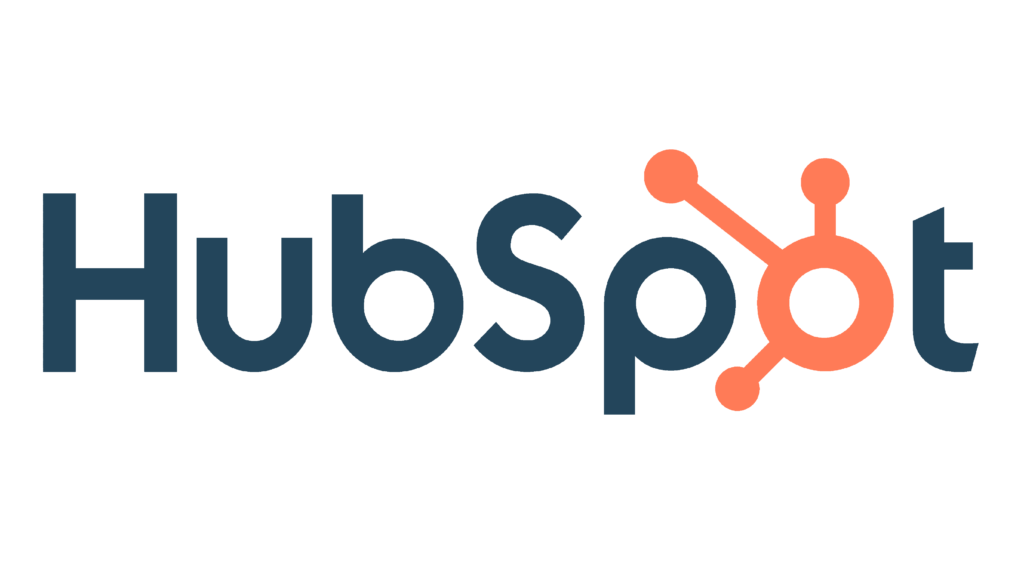
HubSpot
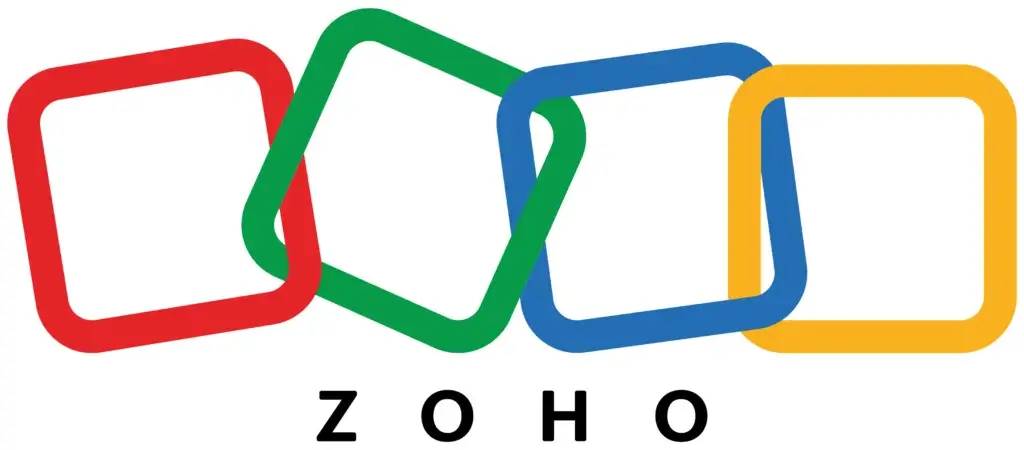
Zoho

Capsule
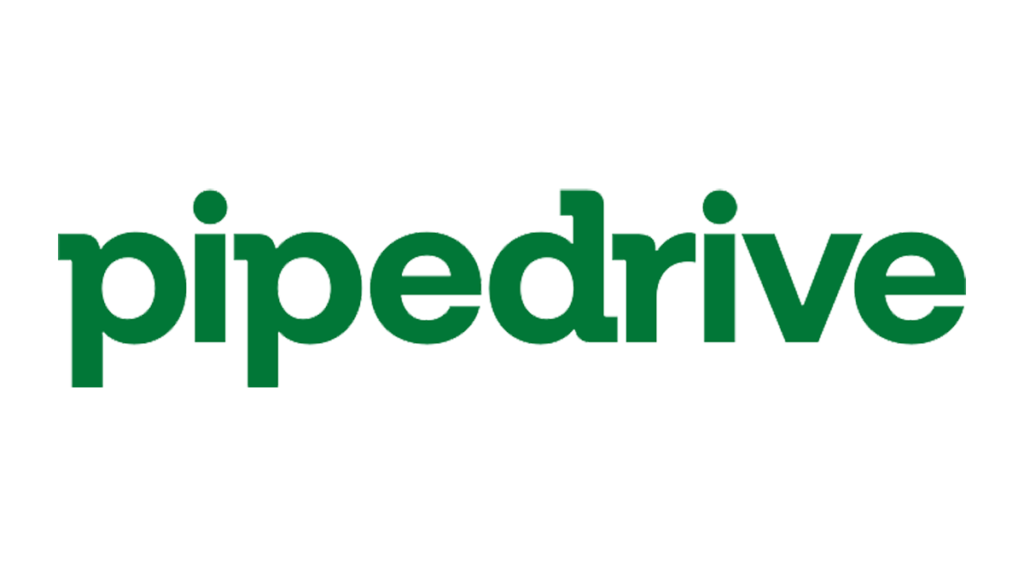
PipeDrive

